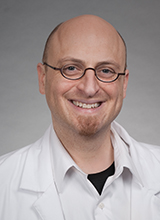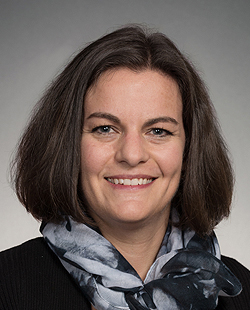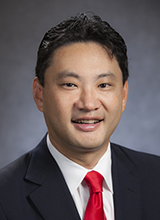Dr. Jaffe’s research is focused on responding to the public health problem of sexual assault and co-occurring alcohol misuse by improving understanding of survivors’ experiences and promoting recovery through novel interventions.
Taking an ecological perspective, Dr. Jaffe considers individual factors (e.g., cognitions, stress response), microsystems (e.g., interpersonal interactions, social networks), macrosystems (e.g., societal norms), and chronosystems (e.g., changes over time) that affect survivors’ recovery after sexual assault. Across these systems, she seeks to design and improve clinical interventions that support survivors’ recovery, mitigate post-assault alcohol misuse, and reduce distress.
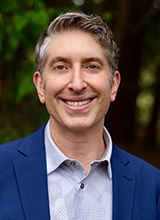
Adam Carmel, PhD is Clinical Professor in the Department of Psychiatry and Behavioral Sciences at the University of Washington. He is the co-director of the Annual Comprehensive DBT Training program in the Department of Psychiatry and Behavioral Sciences at the University of Washington. Dr. Carmel is the co-author of two books published by Guilford Press in 2025, DBT Next Steps Skills Handouts: Building a Life Worth Living and DBT Next Steps Clinician’s Manual: Building a Life Worth Living, written with Drs. Kate Comtois and Marsha Linehan.
Dr. Carmel previously served on the faculty of Harvard Medical School at Beth Israel Deaconess Medical Center. In his role as Director of a DBT outpatient clinic and partial hospitalization program at the Massachusetts Mental Health Center, he developed a psychotherapy seminar for psychiatry residents, psychology interns, and social work trainees.
In 2016 Dr. Carmel received the Faculty Award for Excellence in Teaching and Mentorship from the Beth Israel Deaconess Medical Center, Department of Psychiatry. In 2023 he received the Outstanding Mentoring and Teaching Faculty Award from the University of Washington’s Psychology Internship Program.
Personal Statement
I am a Professor of Psychiatry and Director of the Addictions Division in the Department of Psychiatry and Behavioral Sciences at the University of Washington School of Medicine in Seattle, Washington. I am also the clinical director of addictions treatment services at Harborview Medical Center, and work in the psychiatric rehabilitation and recovery services.
I am board-certified in Psychiatry by the American Board of Psychiatry and Neurology with Added Qualifications in Addiction Psychiatry, and the American Board of Addiction Medicine. A Distinguished Fellow of the American Psychiatric Association and a Fellow of the American Society of Addiction Medicine, I am on the editorial board and a reviewer for several scientific journals and holds a number of research grants from the National Institute of Health.

Personal Statement
I am an investigator in the Seattle-Denver Center of Innovation for Veteran-Centered and Value-Driven Care and Associate Director of the Seattle Center of Excellence in Substance Abuse Treatment and Education (CESATE), one of two national VA centers devoted to improving the quality of care and clinical outcomes of veterans with substance use conditions. I am also a licensed clinical psychologist in Washington State. My primary research interests include evaluating and improving behavioral health and substance use outcomes of Veterans with alcohol and/or drug misuse conditions. I received his PhD from Brigham Young University.
My primary research interests include evaluating and improving behavioral health and substance use outcomes of Veterans with alcohol and/or drug misuse conditions. Ongoing research interests include prevention of alcohol misuse among Veteran populations and development of a collaborative care management intervention for patients with complex, recurrent substance use disorders and high utilization of hospital services. Current projects include evaluating collaborative care management approaches for treating Veterans with complex and chronic substance use disorders, estimating the relative risks of serious adverse events among Veterans with PTSD who are prescribed opioids and benzodiazepines concurrently, evaluating clinical decision support interventions to reduce concurrent use of opioid and benzodiazepine medications among high-risk Veterans and validation of quality indicators for recognition and management of problematic alcohol use, and assessing the recognition and management of alcohol misuse among OEF/OIF Veterans with and without TBI.
Personal Statement
I am a board certified psychiatrist at Harborview and a UW assistant professor of Psychiatry and Behavioral Sciences.
I help patients make sense of troubling situations that interfere with their ability to move forward. I also promote mindfulness and safety from drug interactions. I appreciate the opportunity to be with patients and their families during defining crises and opportunities for change, learn from patients and staff, and mentor the next generation of healthcare professionals.
My clinical interests include bipolar and related disorders, anxiety disorders, depressive disorders, obsessive compulsive and related disorders, personality disorders, schizophrenia spectrum and other psychotic disorders and substance-related and addictive disorders.
Personal Statement
I specialize in emergency psychiatric care, including triage, rapid assessment and stabilization of individuals in psychiatric or substance-induced crises, and identification/ appropriate referrals for physical conditions that may mimic psychiatric illness. I strongly believe in the approach, “The right care, in the right place, at the right time.”
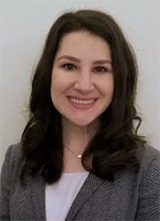
Personal Statement
Dr. Cadigan is an Assistant Professor and licensed psychologist in the Department of Psychiatry and Behavioral Sciences. She received her Ph.D. from the University of Missouri in 2016 and then completed clinical psychology internship and fellowship at the University of Washington Medical Center.
Her program of research focuses on adolescent and young adult health and wellbeing, with an emphasis on the etiology, prevention, and intervention of substance misuse and co-occurring mental health concerns. This work aims to develop, test, and disseminate innovative prevention and intervention programs to reduce substance misuse and improve mental health among adolescents and young adults. This work has included developing and testing programs for young adults who use substances to cope with negative affect and loneliness. Her work has also examined etiological factors related to co-occurring mental health and substance use, including the effects of loneliness, depression, coping motives, social support, solitary substance use, and factors associated with improving access to mental health care.
Clinically, she works with adolescents presenting with depression and suicidality at Seattle Children’s Hospital in the Behavioral Health Crisis Care Clinic and in the Mood and Anxiety Program.
- Recent Grants:
- Development of a behavioral economic intervention with personalized resource allocation feedback to reduce young adult alcohol misuse (PI: Cadigan, NIH/NIAAA1R34AA029478)
- Development of an interactive, we-based drinking to cope intervention and tools to assess coping skill utilization (PI: Cadigan, NIH/NIAAA R34AA028074)

Personal Statement
I am a Professor and Licensed Clinical Psychologist in the University of Washington’s Department of Psychiatry and Behavioral Sciences and am Board Certified in Cognitive and Behavioral Psychology. I received my Ph.D. in clinical psychology from the UW in 2006 and returned to UW as a faculty member in 2010.
My research interests include problematic substance use (including alcohol and marijuana), posttraumatic stress disorder (PTSD), identity and self-concept, and resilience. My work focuses on investigating implicit (i.e., non-conscious or automatic) cognitive processes and processes related to self-concept and identity that contribute to the development and maintenance of maladaptive behavior and psychopathology. A second line of my work focuses on developing and increasing access to briefer, effective interventions for individuals who are trauma-exposed. Support for my work has been provided by the National Institute on Alcohol Abuse and Alcoholism, the National Institute on Drug Abuse, and the University of Washington’s Garvey Institute for Brain Health Solutions and the Addictions, Drug & Alcohol Institute. I also serve as a consultant for dissemination projects aimed at training community-based mental health workers in Cognitive Processing Therapy and other evidence-based treatment for PTSD in locally, nationally, and internationally.





